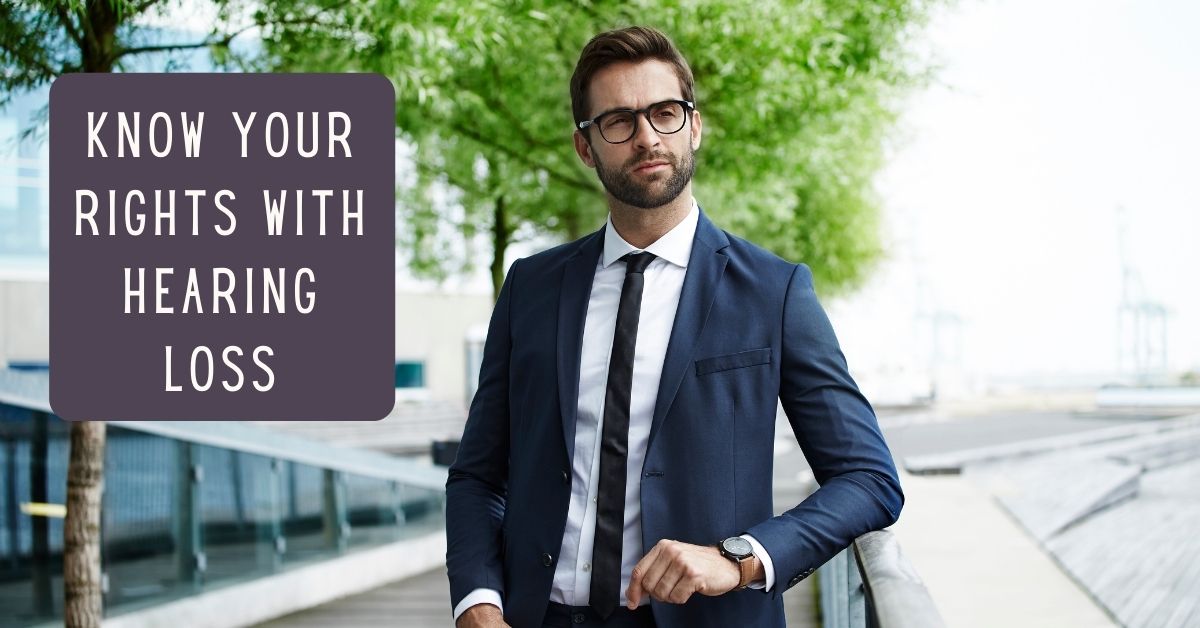
Know Your Rights with Hearing Loss
For those with hearing loss, some things that are easy for others can be an uphill battle. Promoting public awareness of hearing loss is always a struggle, and it won’t occur to everyone that you might be ignoring them because you can’t hear them.
Miscommunications due to hearing loss have led to unfortunate events up to and including police shootings of the hearing impaired. While you can’t be prepared for everything, it’s important to know your rights as a person with a hearing disability.
Let’s take a look at some of the legislative acts that protect the rights of people with disabilities and how they apply to the hearing impaired.
ACAA – Air Carriers Access Act
The ACAA requires that both domestic and foreign airlines operating in the U.S. provide accommodations for those with disabilities. Broadly, this means that passengers may not be discriminated against based on disability, that airplanes and airports must be accessible, and airlines must take steps to accommodate disabled passengers.
For the hearing impaired, this means airlines are required to make any services that are broadly available to the public accessible to those who are deaf or hard of hearing. Services that are available by telephone must also be available for TTY (text telephone). Televisions in airports must display closed captioning at all times on all displays. Once a person with hearing issues discloses to airline personnel, said personnel must make any communication that is provided to hearing passengers available via other means to the passenger with hearing issues.
Airlines are also obligated to allow disabled passengers with service animals to be accompanied by their animals at all times.
ADA – Americans with Disabilities Act
The ADA comprehensively covers a number of aspects of life in America for those with disabilities. Considered a piece of civil rights legislation, the ADA ensures that Americans with disabilities are not excluded from normal aspects of daily life.
The ADA requires that employers provide accommodations for those with disabilities, whether the employer be private, state, or federal, as long as the employer employs 15 or more people. For those with hearing loss, this means you cannot be fired for disclosing your hearing loss, and your employer is legally obligated to make reasonable accommodations for your disability. While it is left to you and your employer to determine what those accommodations should be, if you feel your employer is not engaging in the process in good faith, you have legal recourse to appeal their decision.
The ADA also requires that state and local governments, as well as any business or organization that is open to the public, make any programs or services they offer accessible to those with disabilities. This applies to employment opportunities, but also retail shopping experiences, restaurants, public education, public transportation, health care, legal services and recreation. For the hearing impaired, this means that any event or service hosted by state or local government must be closed captioned, interpreted, or otherwise communicated to those with hearing issues. This applies in public schools, where children with hearing issues must be provided for in order to participate in normal classroom activities. Retailers and restaurateurs must provide reasonable accommodations for the hearing impaired.
The ADA also specifies that any telephone or television carrier must provide access avenues for those with hearing and speech disabilities. This includes the IP CTS, or Internet Protocol Captioned Telephone Service. IP CTS allows those who have significant hearing loss but do not know sign language to communicate over the telephone using text. People who have accessed this technology have called it a “life saver.”
Hearing Aids
While not yet considered a civil right, the importance of getting hearing aids has never been better understood. Study after study confirms that allowing hearing loss that has developed later in life to go untreated can engender a cascade of negative health outcomes ranging from depression to early onset of cognitive decline and dementia. Depending on the degree of hearing loss, hearing aids can effectively eliminate the disability, much like eyeglasses can make a person who would otherwise be legally blind into a seeing person.
